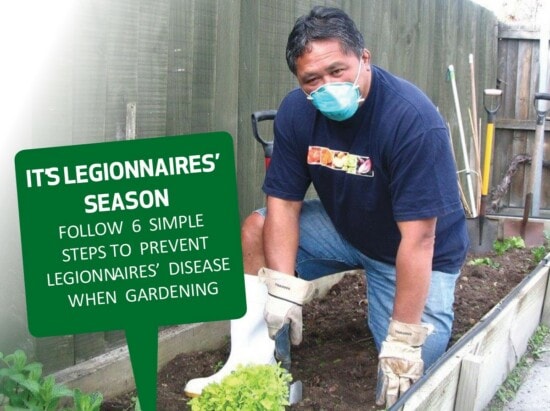Spring is the perfect time to be out in the garden. It’s also unfortunately the time when gardeners are most at risk of catching Legionnaires’ disease from bags or bulk loads of potting mix and compost.
With 32 cases of the disease already confirmed in the region this year, gardeners are being urged to take care with potting mix and compost.
Dr Matt Reid, Te Whatu Ora National Public Health Service Waitaha Canterbury Medical Officer of Health, says Legionnaires’ disease is a form of pneumonia.
“It’s caused by the legionella bacteria that live in moist organic material and people can catch the disease by breathing in airborne droplets or particles containing the bacteria.
“Gardeners are at particularly high risk of catching Legionnaires' disease as the bacteria thrive in potting mix and compost,” says Dr Matt Reid.
In Canterbury there is typically a spike in cases in spring that can be attributed to increased gardening activity and good weather. Now is the time for people to make sure they are taking the necessary steps to avoid catching the disease.
Dr Matt Reid says there are some simple actions gardeners should take to avoid getting Legionnaires’ disease:
- Work with potting mix or compost in a well-ventilated outdoor area
- Wear a well-fitting face mask. An N95 or respirator is best
- Wear gloves when handling potting mix or compost
- Open potting mix or compost bags carefully using scissors and open them away from your face
- Reduce dust by dampening down the potting mix or compost before using it
- Wash your hands thoroughly after handling potting mix or compost and before touching your face or removing your mask.
“Legionnaires’ disease is a very serious illness and following these simple steps can be lifesaving,” says Dr Matt Reid.
The illness may be mild but can sometimes be fatal. It is more common in older people, particularly if they smoke, have poor immunity or a chronic illness. However, even healthy young people have died from Legionella pneumonia.
Symptoms can include dry coughing, high fever, chills, shortness of breath, muscle aches, headaches and diarrhoea. If you have these symptoms, you should contact your general practice team right away for advice and let them know you if have been handling potting mix or compost.
For more information on Legionnaires’ disease visit: https://www.healthinfo.org.nz/index.htm?Legionnaires-disease-legionellosis.htm
ENDS

